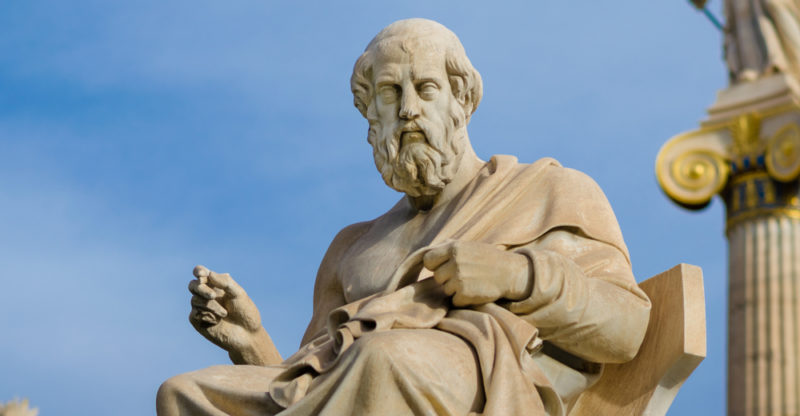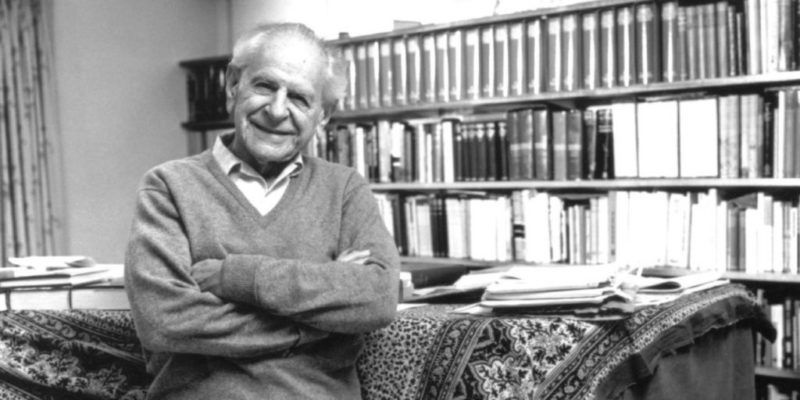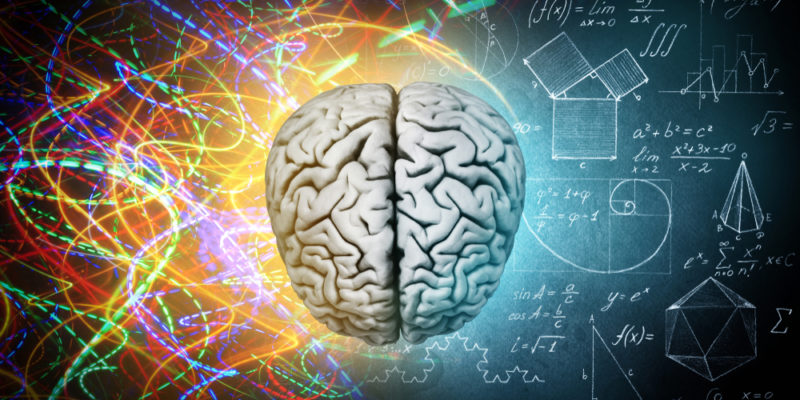We explain what epistemology is, what it studies and the tasks it fulfills. In addition, we explore its characteristics, types and examples.

What is epistemology?
Epistemology is the branch of philosophy that studies the origin, nature and scope of knowledge. The term derives from the Greek words epistḗmē (“knowledge”) and lógos (“study” or “science), hence it is generally referred to as the theory of knowledge.
Epistemology is concerned with issues regarding how we understand, acquire, and validate knowledge. It consistently aims to answer questions about what can be known and through what methods or processes.
In its quest for knowledge, epistemology may overlap with other fields of study, cutting across disciplinary boundaries. Furthermore, it may pave the way for other disciplines to self-reflect. Epistemology is often confused with gnoseology, which studies general knowledge. Part of the current academic community holds that epistemology’s specific field of study is scientific knowledge per se.
- See also: Structuralism
General problems of epistemology
As a philosophical discipline, epistemology’s central issue is not what knowledge is but how it is acquired, which it seeks to answer through inquiry.
Thus, some of the main concerns of epistemology revolve around the sources of knowledge, how it arises, how to distinguish true knowledge from false and what kind of knowledge can be acquired. These types of questions are related to what is known as the “theory of knowledge.”
Many of the greatest philosophers in history have contributed to epistemology in one way or another by proposing concepts and methods for the validation of knowledge. In recent years, epistemology has been the object of intense study by Anglo-Saxon philosophers and scientists who have shifted the discipline towards the field of the philosophy of science.
Strictly speaking, the primary task of epistemology as an autonomous discipline is the critical, historical and contextual study of the sciences, as well as their principles, methods and results. In this sense, science should be defined as any discipline that seeks to produce or obtain general knowledge.
Etymology
The term "epistemology" derives from the ancient Greek word epistḗmē (ἐπιστήμη), which means "knowledge" or "science", and the suffix -logia, from the word logos (λόγος), which can be translated as "study", "reason" or "logical discourse". Etymologically, epistemology is understood as the "theory of science" (which should not to be confused with the theory of knowledge, a distinct branch of scientific discourse).
The ancient Greek word “episteme” referred to intellectual knowledge, as distinct both from knowledge of the tekne (technique), which was instrumental or practical knowledge, and from “doxa” (or general knowledge), associated with the opinion of those uneducated in the fields of knowledge.
History of epistemology
Even when epistemology is regarded as a science or autonomous branch of science, its history can be traced back to the works of Ancient Greek philosophers, such as Plato and Aristotle.
A distinction was made in Ancient Greece between two types of knowledge: doxa or vulgar knowledge and episteme or rational knowledge, grounded in thought. However, there was no discipline equivalent to modern epistemology at the time.
Epistemology took its first formal steps during the European Renaissance (15th and 16th centuries), when science marked a turning point which overthrew the prevailing view of faith, replacing it with reason as the method to attain truth and general knowledge.
Its boost was largely due to the works of philosophers and scientists like Johannes Kepler (1571-1631), Galileo Galilei (1564-1642), Francis Bacon (1561-1626), René Descartes (1596-1650), Isaac Newton (1642-1727), John Locke (1632-1704), Immanuel Kant (1724-1804) and Gottfried Leibniz (1646-1717).
The works of Locke, for example, gave an account of methods for acquiring knowledge, as did Descartes and Kant, each in their respective works and according to their own points of view.
Nonetheless, the most profound influence in the scientific field that paved the way for the emergence of epistemology came from the logical positivist thinkers, members of what came to be known as the Vienna Circle. Among them were Carnap, Neurat and Hempel, for example, motivated by the works of Bertrand Russell, on the one hand, and Ludwig Wittgenstein, on the other.
It was Karl Popper who discussed the works published by the Vienna Circle. He criticized and replaced the concept of induction (which is the reasoning process of arriving at the general from the specific) with the hypothetico-deductive method. It affirms that theories are not verifiable but only momentarily corroborated. In any case, they are sustained until they are overthrown by other theories that eventually replace them, as happened with induction.
Epistemology was key in the formulation of the concept of science and scientific knowledge prevalent in the thought of the 19th and 20th centuries. During the latter century, hermeneutics was developed as a philosophical theory. Hans-Georg Gadamer (1900-2002) argued that the philosopher’s task is to interpret the written text, searching for sense and understanding the way in which ideas are articulated to generate knowledge. Thanks to Gadamer's contribution, epistemology opened to other branches of knowledge such as history, politics, economics and even art. All of these constitute fertile fields of thought for continuous research to this day.
Epistemology schools of thought

From the twentieth century onwards, three different schools of contemporary epistemology were founded and remain current:
- Logical positivism. The result of the studies of Bertrand Russell (1872-1970) and Ludwig Wittgenstein (1889-1951), it was formed around the Vienna Circle, which transformed 19th century positivism into a doctrine that later found an echo in the Berlin Circle and the Prague Circle.
- Critical rationalism. Advanced by the work of Karl Popper (1902-1994), it critically opposed logical positivism and meant a decisive turn in the foundations of the Vienna Circle.
- Post-Popperianism. It includes philosophers who, although inspired by positivism or Popper's work, do not fully subscribe to it.
Though it has its origin in epistemology, hermeneutics is not considered a contemporary epistemological science, but a derivation of it.
Object of study of epistemology
Epistemology is concerned with the nature, origin and scope of human knowledge.
It determines the types of possible knowledge, the processes through which they are formed and the logic behind the validity of knowledge.
In this sense, its main concepts are truth, objectivity, reality and justification. However, this is not all it seeks. Broadly speaking, it can be said that epistemology studies:
- The historical, social and objective context of the emergence of scientific knowledge.
- The criteria used to determine scientific knowledge.
- The concepts of truth, justification, corroboration and hypothesis, among others.
Problems of epistemology

Epistemology tackles general issues of knowledge as well as specific issues of various sciences or disciplines. Debates in epistemology can be summarized as follows, from the most general to the specific:
- Issues regarding the relationship between the various fields of scientific knowledge, how the sciences are classified, what points they have in common, etc.
- Issues regarding formal and concrete sciences.
- Issues regarding the conceptual borrowing between the sciences and how their different perspectives modify the sense given to certain "common" ideas.
- Issues related to the theoretical and experimental aspects of science, i.e., verification, objectivity, scientific truth and the formulation of laws, theories and hypotheses.
- Issues inherent to formal thought: logical and mathematical, their scope and ontology.
- Issues inherent to scientific realism: all that is related to experimental testing, scientific methodology and inductive processes.
- Issues inherent to the life sciences and the human being, in which the need arises to distinguish between facts and realities, assessments and interpretations.
Tasks of epistemology
Some of the tasks in the study and research of epistemology involve:
- Questioning the limits of knowledge. It may review and question accepted methods for formulating knowledge of the real world.
- Reviewing methodologies. It questions the methods we use to distinguish valid knowledge from a belief or assumption, and knowledge depending on its source.
Differences with gnoseology

Gnoseology is the branch of philosophy that studies how we constitute the knowledge of the world. The fundamental difference with epistemology lies in the fact that gnoseology studies the scope of all types of general knowledge whereas epistemology is limited to scientific knowledge.
However, this distinction is often questioned. Various Anglo-Saxon scholars maintain that epistemology and gnoseology can be synonymous, and they further use the term as an equivalent to an even broader category, which is theory of knowledge.
Representatives of epistemology
Since epistemology is considered an autonomous and independent discipline, various thinkers and philosophers have produced works on the subject. Among them are:
- Rudolf Carnap, Otto Neurath and Carl Hempel. They were part of the Vienna Circle and emigrated to the United States to continue their work.
- Karl Popper. A fervent critic of logical positivism, he is credited with the use of the hypothetico-deductive method.
- Hans-Gadamer. The founder of hermeneutics, he used epistemology to work with different human sciences, generally distanced from the traditional scientific discourse.
- Paul Ricoeur. A French hermeneutic phenomenologist, he combined the scientific-hermeneutic method with phenomenology (which studies the appearance of phenomena).
Examples of epistemology
Epistemological criteria may be applied through the use of belief, truth and justification. These three conditions are jointly sufficient for a belief to constitute knowledge.
- Belief. A person cannot claim to know something if they do not not believe it to be true.
- Truth. A person who believes something false does not know it for a fact but is mistaken in their belief.
- Justification. A person must have a reasonable justification for their belief in order to be considered true knowledge.
An example of this is: John knows that there are cows in the neighboring field. This can be considered something that John knows since:
- Juan believes it to be true (belief).
- There are cows in the neighboring field (truth).
- Juan saw the cows in the neighboring field (justification).
References
- Grondin, J. (1999). Introducción a la hermenéutica filosófica. Herder.
- Ayer, A. J. (Ed.). (1965). El positivismo lógico. FCE.
- Bachelard, G. (1975). Epistemología. Anagrama.
- Waetofsky, M. W. (1973). Introducción a la filosofía de la ciencia, 2 vols. Alianza.
- Verneaux, R. (1999). Epistemología general o crítica del conocimiento. Herder.
- “Epistemology” - Internet Encyclopedia of Philosophy (IEP).
- “Epistemology” - The Encyclopaedia Britannica.
Related articles:
Was this information useful to you?
Yes NoThank you for visiting us :)